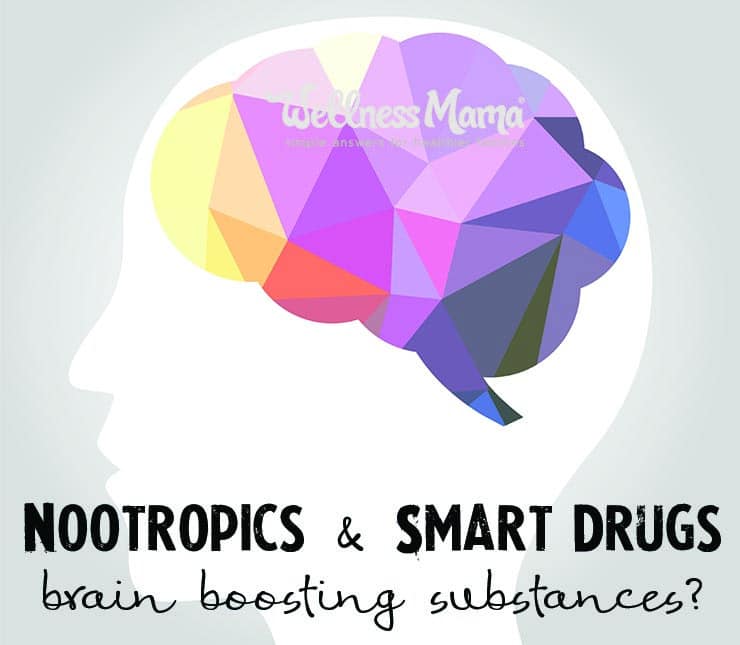Nature Knows and Psionic Success
God provides
Omega-3 fatty acids found to suppress the growth and spread of breast cancer

( Natural News ) Omega 3 fatty acids are highly regarded for their health benefits . Whether it’s boosting brain function, supporting joint health or keeping your skin smooth, omega 3 fats are up to the task. Studies have even shown that the fatty acids can help prevent cancer. In fact, a new study recently published by scientists from University of Nebraska Medical Center has shown that consuming omega 3 fats may inhibit the growth and spread of breast cancer cells. Chemotherapy may be more dangerous than cancer itself, and with awareness of the cancer industry’s corruption growing, it is no wonder that skepticism of modern medicine is on the rise. Many people are turning to natural, plant-based remedies to treat their cancer after so-called conventional treatments have failed them. And with scientists now focusing in on the healing powers of plants and foods, like turmeric or cannabis, the old adage “Food is medicine,” rings especially true. The pharmaceutical industry has managed to dominate the medicine arena for decades, but will Big Pharma’s reign soon come to an end? Omega 3s and cancer prevention New research published in Clinical & Experimental Metastasis has shown that omega 3 fats may be effective in preventing tumor development, as well as inhibiting the spread of cancer cells to other organs. Lead study author Saraswoti Khadge, of University of Nebraska Medical Center, commented on the findings and stated, “Our study emphasizes the potential therapeutic role of dietary long-chain omega-3 fatty acids in the control of tumor growth and metastasis.” The power of the elements : Discover Colloidal Silver Mouthwash with quality, natural ingredients like Sangre de Drago sap, black walnut hulls, menthol crystals and more. Zero artificial sweeteners, colors or alcohol. Learn more at the Health Ranger Store and help support this news […]
Nootropics and Smart Drugs: Brain Boosting Substances?

Throughout human history there seems to be a constant search for a silver bullet or pill that will make us faster, stronger and smarter. Sure, there are more difficult ways of accomplishing all of these goals (through various types of training), but humans seem fascinated with the search for a substance or “ hack ” that will make the process easier. While this is an age-old search, new options have emerged and gained popularity in the form of smart drugs and nootropics, though many are still not aware of the benefits (and risks) of these substances. The movie “ Limitless ” increased interest in these substances as the main character finds a smart drug that allows him to become cognitively superhuman, but then faces the unintended consequences of the drug. What are Nootropics and Smart Drugs? In short, these are substances that enhance cognitive performance in some way. Some are natural, in the form of herbs or high-dose vitamins, while others are man-made and pharmaceutical. Technically, while “smart drugs” typically refer to any pharmaceutical (or nutritional substance) that increase brain performance, nootropics must fulfill five criteria defined by the man who coined the term, Dr. Corneliu E. Giurgea: The substance should enhance the brain in some way. It should improve cognitive performance under stress (such as electrical shock or oxygen deprivation) The substance should have protective properties that protect the brain against harmful substances. The substance should “increase the efficacy of neuronal firing control mechanisms in cortical and sub-cortical regions of the brain.” ( 1 ) It should be non-toxic and have no harmful side effects. Tall order, huh? As you can imagine, this limits the number of substances that technically meet the definition of “nootropics,” and as Bradley Cooper’s character found in the movie “Limitless,” substances that offer […]
Focus Factor America’s #1 Brain Health Supplement Improve Memory

Focus Factor is a brain health and wellness supplement that has actually been scientifically revealed to improve memory, concentration, and also focus. Often, the most significant challenge is having the ability to remain concentrated throughout your day. Specifically when that includes multitasking with children, job, house life etc. Focus Factor’s trademarked and also clinically examined formula, is proven to enhance memory, and also focus. How does Focus Factor help to boost memory? Taking the original Focus Factor as directed, adults experienced a 44% rise in memory recall after only 6 weeks The medical research showed that grownups that took the original Focus Factor for six weeks enhanced their memory, concentration as well as focus. Focus Factor has offered millions of individuals throughout the country for over 15 years. Focus Factor® Extra Strength is an innovative formula that takes the initial, medically examined Focus Factor ® formula and also enhances the level of key selected neuro-nutrients. Focus Factor Brain & Vision is a very powerful 2-in-1 formula that integrates the initial, scientifically checked Focus Factor formula with specialized eye nutrients such as Lutein and Zeaxanthin in order to promote healthy vision. Lutein, as well as Zeaxanthin, are natural carotenoids that have been revealed to be concentrated in the macula section of the retina. Focus Factor® Kids is developed particularly for youngsters, giving them crucial vitamins and also neuro-nutrients. Focus Factor Kids is recommended for youngsters 4 years of age and also older. The formula consists of no preservatives, no man-made colors, no man-made tastes and is both gluten and dairy-free. It is available in scrumptious berry blast chewable tablets. Focus Factor is a medically tested brain health and wellness supplement, confirmed to increase memory recall by 44%. In a 6 week, a double-blind, placebo-controlled research study by Cognitive Research Corp, […]
Brief exercise before learning a task improves both short- and long-term memory

( Natural News ) It’s not news that exercise benefits a person, both physically and mentally — but how much and when should one do it? A study published in the journal Psychological Reports reported that a short period of exercise before learning enhances both short and long-term memory . Researchers at the University of Mississippi sought to determine when exercise, in relation to the learning task, can best boost memory. For the study, they recruited university students aged between 18 and 35 who didn’t smoke, were not pregnant, and had no recent injuries or learning disabilities. The participants also did not exercise recently, drink coffee, or take controlled substances. The team asked the participants to complete four one-hour visits to the laboratory. One of the four visits was a control session in which the participants did not exercise, but took a five-minute rest before completing the short and long-term memory task. The other visits involved three sessions of exercise. The participants would do the learning task before, during, or after the exercise, in which they walked on a treadmill at an average of 3.4 miles per hour (mph) for 15 minutes. After all the visits, the participants spent 20 minutes watching an episode of The Office, which served as a distraction. Afterward, they attempted to recall the words from the memory test. The results revealed that the participants’ learning improved across trials. However, walking on the treadmill before the learning task resulted in the most significant improvements both in short and long-term memory performance. Get CLEAN FOOD and help support our mission to keep you informed : The Health Ranger Store lab verifies everything we sell with accredited testing for heavy metals, microbiology and food safety. Certified organic facility, ISO-accredited on-site laboratory, no GMOs or synthetic ingredients. The […]
The truth about fats – which ones are really good for you

( Natural News ) For decades, dietary fats have been slammed for everything from heart disease to diabetes. Saturated fats have born the brunt of the blame, but the truth about fat is slowly rising to the surface. Back in the 1960s, the Sugar Research Foundation (a trade group known today as the Sugar Association) paid Harvard scientists to skew their research on fat, sugar and heart disease. Ever since then, fat has been the “black sheep” of the macronutrients. Today, research that hasn’t been tainted by industry interests shows that a certain amount of dietary fats are essential, including saturated fat — and that sugar is worse for you than ever imagined. Nowadays, consumers also need to be concerned with not just what type of fat they are consuming, but the fat’s source. For example, olive oil and canola oil are two very different beasts, even though most mainstream nutrition advice will tend to say otherwise. The scoop on saturated fat While conventional wisdom says that saturated fats are inherently bad for you, clog your arteries and increase cholesterol levels, there is a growing body of evidence which shows that this alleged association isn’t correct . The British Journal of Sports Medicine published a highly controversial editorial in which a group of experts explained that saturated fat doesn’t clog arteries, and that coronary heart disease is actually a chronic inflammatory condition. “Despite popular belief among doctors and the public, the conceptual model of dietary saturated fat clogging a pipe is just plain wrong,” the authors state. The power of the elements : Discover Colloidal Silver Mouthwash with quality, natural ingredients like Sangre de Drago sap, black walnut hulls, menthol crystals and more. Zero artificial sweeteners, colors or alcohol. Learn more at the Health Ranger Store and help support […]
Cyborg future on its way: Microchip brain implants will allow you to delete bad memories and fight disease, due out in about 15 years

A Silicon Valley company is looking to break new ground on developments in the ever-mysterious realm of our brain . Kernel, founded in 2016 by Bryan Johnson, is a personally-funded $100 million start-up looking to further understand the sensitive organ, and address neurodegeneration. By developing brain chips that allow you to “buy and delete memories”, Johnson aims not only to help individuals suffering from Alzheimer’s and other neurodegenerative diseases, but to unlock the brain’s potential, and make it available to everyone. The brain chips being developed will aim to perfect the memory, delete unwanted memories, increase the rate of learning, and allow brain-to-brain communication. Furthermore, the brain chip will also allow you to “buy” other people’s memories and see (and experience) them for yourself. This technology, being so far from reality, may seem extremely expensive, but Johnson assures that it will be democratized – like a smartphone. Currently, the brain chips they are developing are focused on helping neurodegenerative diseases like epilepsy, Alzheimer’s, and other forms of dementia. The company is currently testing it on patients with severe epilepsy. Johnson, however, doesn’t have expertise in the field of neuroscience. He relies on his contacts and other companies that have already begun research in this delicate field, and have employed personnel such as Theodore Berger, a professor of biomedical engineering at the University of South California . Currently Chief Science Officer at Kernel, Berger’s previous research proved that the hippocampus, the part of the brain responsible for memory, can be replicated using mathematical modeling and computer software. Other notable Kernel personnel are Chief Scientific Advisor Ed Boyden, professor of biological engineering and brain and cognitive sciences at the Massachusetts Institute of Technology (MIT), and Chief Strategy Officer Adam Marblestone, a neuroscientist who previously worked with Boyden’s Synthetic Neurobiology Group. Tackling […]
Carotenoids may also bolster brain function in older adults: Study

( Natural News ) Researchers from the University of Georgia have found that certain carotenoids can significantly improve brain function in older adults . In their study, which appeared in the Journal of International Neurophysical Society , the team investigated whether the carotenoids lutein and zeaxanthin affect cognitive function and neural efficiency using verbal learning tests. Aging is a complicated process — and one that affects each individual differently. For the most part, however, a common trend seen in most older adults is a steady decline in cognitive ability, otherwise known as cognitive impairment. This is a cause of concern for most people, as memory impairment could indicate an underlying health issue — chief of which is dementia , a severe form of cognitive decline. Indeed, having some form of decline in brain function does not immediately mean a condition such as dementia, but it could still significantly reduce the overall quality of life in older adults. Earlier studies have linked carotenoids to brain function , with some concluding that these have antioxidant and anti-inflammatory properties, which can greatly benefit a person’s brain health. In particular, consuming fruits and vegetables, which are the primary sources of carotenoids, can prevent cell damage from oxidation, thanks to the ability of carotenoids to trap free radicals. To note, carotenoids are plant pigments that give fruits and vegetables their bright red, yellow, and orange hues . Of these carotenoids, lutein and zeaxanthin are the more popular ones, given that the two are the only carotenoids found in the retina. The two are famous for their ability to protect the eyes from age-related macular degeneration, a leading cause of blindness, and reduce the incidence of cataracts. Mother Nature’s micronutrient secret : Organic Broccoli Sprout Capsules now available, delivering 280mg of high-density nutrition, including the […]
7 Ways You Can Improve Your Concentration

Concentration and memory are the two key focus points for every individual. When you are concentrated, your memory automatically improves as you are able to retain the information for a longer period of time. Having a sharp memory and good concentration power is useful to people of all ages and all professional domains, whether a student or a CEO. Do you not wish that you could have the memory of an elephant who never forgets anything? So, in this article, we are going to discuss some similar tricks and methods that you can use in your daily life to improve your concentration power and in turn, memory. 1. Play Mind Games Before you plan to beat me up, listen. Mind games are an amazing method to improve your concentration. Moreover, it is more effective when you are playing these games offline rather than opening a new tab and searching for the best mind games to improve concentration. 2. Creating a To-Do List A to-do list is probably the simplest thing that you can do. With the availability of almost everything over the internet, we are now the people who take out the phone and ask Google everything right then and there. But, what about after that? Also, have you ever noticed that once you ask your Google assistant what’s the weather like tomorrow, you are browsing through your Instagram feed before you realise it? So, create a to-do list that you can paste right in front of you. Keep it in your view and you will be saved from getting distracted. 3. Meditate You don’t need to be a sage almighty or you don’t need the peace of nature with a waterfall and chirping birds so that you can meditate peacefully. Meditation can be done right at your home, […]
Ayurveda’s Best Advice on Brain Health

When we talk about brain health, we mostly talk about the physical aspects over the mental ones. In order to prevent age-related cognitive decline, modern medicine touts all kinds of valuable physiological strategies. But in Ayurveda, the approach to long-lasting brain health is a little different. That’s because we see the brain in a less concrete way. In Ayurveda, the mind is seen as something that’s spread all over the body. It’s located in two main areas: the head and the heart. In a sense, the head is the epicenter of the logical mind, and the heart is the location of the emotional mind. For optimal brain health to be achieved, these two aspects of the mind need to exist in harmony. The brain and the mind are intertwined. There are three main ways to achieve this balance between logic and emotion: lifestyle, diet, and herbs. Here’s what you need to know about each. If you’re familiar with Ayurveda, you probably know that daily routine is an important part of the ancient practice. Tongue scraping and drinking water first thing in the morning are examples of routines Ayurveda recommends. These rituals laid out in the ancient texts are meant to be practiced daily for life. They serve a crucial purpose: To make use of our sense organs (like the ears, eyes, skin, and more) in order to establish a connection with our natural instincts over the forces of our minds. Practices, like oil massage, are great examples of this. Vata , the wind energy, is considered to be the most harmful dosha when it comes to brain health. The best way to reduce the influence of an energy is to do something with opposite qualities. So since vata is dry, cold, and rough, we can use daily oil massage […]
Babies Do It. So Do Fitness Trainers. Now Scientists Say It Might Even Improve Memory.

Babies do it. Yoga practitioners swear by it. Fitness instructors say it aids in oxygenation during exercise. Scientists are even touting it for predicting the likelihood of dementia. And now researchers are even claiming that the way we breathe may affect how well our memories are consolidated. Maybe there really is something to breathing through your nose. Neuroscientists at Karolinska Institutet in Sweden recently reported in The Journal of Neuroscience that if we breathe through the nose rather than the mouth after trying to learn a set of smells, we remember them better. As studies into how breathing affects the brain—many of which have concentrated on memory—have gained traction in recent years, researchers scrutinizing the link between smell and memory have determined for the first time that participants who breathe through the nose consolidate their memories better. “Our study shows that we remember smells better if we breathe through the nose when the memory is being consolidated – the process that takes place between learning and memory retrieval,” said Artin Arshamian , researcher at the Department of Clinical Neuroscience, Karolinska Institutet . “This is the first time someone has demonstrated this.” The phenomenon hasn’t been studied before, according to researchers, because the most common laboratory animals—rats and mice—cannot breathe naturally through their mouths. For this study, neuroscientists charged participants with learning twelve different smells on two separate occasions. Subjects were then asked to either breathe through their noses or mouths for one hour. Following the experiment, participants were presented with the old as well as a new set of twelve smells, and asked to report if each one was from the learning session or a new smell. “The results showed that when the participants breathed through their noses between the time of learning and recognition, they remembered the smells […]
Can a 10-minute, non-stressful exercise help stimulate your memory?

( Natural News ) You can improve your recent memory through a short session of light exercise. An article in Psychology Today reported that people performed better in short-term memory tests after spending 10 minutes on an exercise bike at a steady but unhurried pace. The findings came from an experiment conducted by Japanese and American researchers. They employed a bicycle ergometer, a type of stationary bike that is usually used to measure the amount of work exerted by the user. Overseen by researchers from the University of California at Irvine (UCI) and the University of Tsukuba (Tsukuba), the experimental group consisted of 36 young adult volunteers. Each participant underwent a test of their episodic memory. Participants would be shown pictures of ordinary everyday objects, one after another. They would try to figure out if there were any similarities between the current object and the ones shown just earlier. They found that participants who took the 10-minute-long exercise before the test demonstrated better episodic memory. The volunteers were able to quickly and accurately remember previous objects, as well as any possible connections between the earlier ones and the current object. (Related: Yes, you can exercise your brain to dramatically improve cognitive performance .) Short sessions of moderate exercise can sharpen short-term memory The UCI and Tsukuba researchers explained that the 10-minute time limit of the non-stressful exercise is short enough to be practical for most people. At the same time, it is long and intense enough to induce memory benefits. Mother Nature’s micronutrient secret : Organic Broccoli Sprout Capsules now available, delivering 280mg of high-density nutrition, including the extraordinary "sulforaphane" and "glucosinolate" nutrients found only in cruciferous healing foods. Every lot laboratory tested. See availability here. They noted that the exercise raised the activity levels of the hippocampus , […]
Bacopa is a little-known herb that can improve memory and brain health

( Natural News ) Let’s face it: The hectic pace of modern life means we could all use a little extra help remembering the mountain of things we need to get through in any given day. And, as we get older, remembering where we put the keys and which day of the week we need to take the car in to be repaired gets harder and harder. Fortunately, help is at hand. Bacopa monnieri , a nootropic herb that has been a staple of Ayurvedic medicine for thousands of years, could be just what you need to enhance your memory and protect your brain health as you get older. What is bacopa? Also known as brahmi or water hyssop, this herb has an established history as a potent memory aid and general brain health enhancer. A creeping perennial plant native to India, Asia, Australia, Europe, Africa and the Americas, bacopa is such a potent memory aid that, as reported by Natural Health 365 , shamans in India used it to enable them to memorize texts that were more than 900 pages long. More recently, peer-reviewed studies have confirmed bacopa’s amazing memory and concentration enhancing abilities, as well as its beneficial effects on information recall, retention of knowledge and visual processing speed. It has also been found to improve emotional well-being, providing relief for depression and anxiety. And it has shown great promise as a treatment for attention deficit hyperactivity disorder (ADHD). Modern studies back up what Indian herbalists have known for thousands of years U.S. and Australian studies found that after just three weeks of supplementation study participants were able to process information more quickly and retain it for longer. The power of the elements : Discover Colloidal Silver Mouthwash with quality, natural ingredients like Sangre de Drago sap, […]
Improved technology allows bipedal robots to maintain human-like balance

( Natural News ) Texan researchers have just given bipedal robots the complex ability to balance their bodies in the same way that humans innately do. An article in Science Daily described how this will let robots catch up to their makers in terms of mobility. Humans are naturally capable of walking through a cramped or crowded area without putting much effort into it. The human brain contains the necessary set of complicated skills that control the body automatically. Researchers from The University of Texas at Austin (UTexas) decided to give that level of functionality to robots. Team leader Luis Sentis and his students from the school’s Human Centered Robotics Laboratory developed a brand-new means of bringing a human sense of balance to a bipedal robot named after the swift messenger god of the ancient Greeks. They believe their new method can be used to improve walking robots that are now being tested and used in all kinds of roles. Military units, search-and-rescue machines, and the like will one day be able to tread as carefully as the humans they are looking for. (Related: Coming soon: Mini robot grocery stores .) Reducing the human skill of whole-body balance into mere numbers for robots Long story short, the UTexas researchers took the physical dynamic skill of maintaining the balance of the entire body, which robots have a hard time understanding. They then translated it into a mathematical equation , which artificial intelligence can grasp pretty well. That numerical formula was integrated into the programming of the lab’s bipedal walking robot, Mercury. First built in 2012, Mercury underwent six years of testing before it achieved a semblance of human balance. Get CLEAN FOOD and help support our mission to keep you informed : The Health Ranger Store lab verifies everything we […]
Even small amounts of exercise found to alleviate symptoms of ADHD in adults

( Natural News ) Another study proves that exercise benefits the brain, even in small amounts. A study carried out by researchers at the University of Georgia revealed that adults with attention deficit hyperactivity disorder (ADHD) who exercise, even in small amounts, can experience improvements in the symptoms of their condition. ADHD is a behavioral disorder that makes it hard for a person to pay attention and control impulsive behaviors . It also causes a person to be restless and almost always active. Nearly six percent of American adults report symptoms consistent with ADHD, which result in anxiety, depression, decreased energy, low motivation, poor performance at work or school, as well as increased traffic accidents. For the study, the researchers recruited 32 young men with elevated ADHD symptoms. The participants cycled at moderate intensity for 20 minutes for one day. On another day, they sat and rested for 20 minutes as a control. In addition, the participants completed a task that required them to focus both before and after the different conditions. At the same time, the researchers took note of the participants’ leg movement, mood, attention, and self-reported motivation to accomplish the task. The results of the study revealed that the participants only felt motivated to do the task after the exercise. They also reported feeling less confused and fatigued and more energetic. These findings suggested that even a single round of exercise can provide psychological benefits for adults with elevated ADHD symptoms. Moreover, exercise is a much safer option than prescription drugs as they do not cause adverse side effects. (Related: Just ONE exercise session can offer substantial and IMMEDIATE benefits toward brain health .) The power of the elements : Discover Colloidal Silver Mouthwash with quality, natural ingredients like Sangre de Drago sap, black walnut hulls, […]
How medicinal mushrooms keep you strong even if you’re constantly stressed

( Natural News ) Mushrooms have a long and well-documented history when it comes to their use in alternative medicine. The first people to acknowledge their therapeutic potential were the Chinese, who used them as natural remedies for diseases such as cancer, infertility, and post-traumatic stress disorders. Recently, more people are recognizing their use in keeping the body healthy in times of stress . Something that all medicinal mushrooms have in common is that they possess adaptogenic properties, which primarily involves regulating cortisol levels. This stress hormone is helpful in the short-term, but if it’s produced for extended periods, it can start wreaking havoc on your body. The following are ways through which stress affects a person’s health and how medicinal mushrooms can help: One of the main problems that people experience when they’re feeling stressed or anxious is the inability to fall asleep . This often happens because the brain is working on overdrive, so it’s unable to provide a sense of peace and calmness that’s essential not just to fall asleep but to stay asleep as well. A lack of sleep will make a person more stressed since it interferes with their health and their daily activities. This contributes to a cycle that can only be broken if you reduce your stress levels or achieve better sleep. We recommend that you address this issue with the medicinal mushroom called reishi. Reishi, also known as “the mushroom of immortality,” is commonly used in traditional Chinese medicine utilize to improve spiritual potency, well-being, and longevity. To enjoy these benefits, they often consumed the mushroom in tea form due to its bitter and woody taste . Recently, studies have shown that these applications are possible due to the presence of nutrients like calcium, magnesium, and antioxidants that calm and support […]
Exercise is the universal medicine for almost anything that ails us

( Natural News ) If you want to keep your body strong, you need to exercise regularly and follow a healthy diet. According to Dr. Ronald Tarrel, physical activity can also help boost brain health . Regular exercise is good for your brain and body Dr. Tarrel, a neurologist specializing in stroke and neurocritical care at the Noran Neurological Clinic , shared that he often prescribes exercise to patients since it is “the most universal medicine” for any health problem. Exercise can help your body move better physically by strengthening your bones, joints, and muscles. Additionally, exercise can help regulate body functions such as blood pressure, glucose, and insulin. However, not many people know that regular exercise can also significantly boost your brain health in four ways. It can boost your mood. Physical activity can positively affect your brain chemistry. Whenever you work out, your body releases endorphins, the “feel-good” chemicals that can help trigger positive feelings. Exercising also helps release serotonin, a neurotransmitter that functions as a natural antidepressant. Both endorphins and serotonin can help improve your mood. If you feel anxious or stressed, physical exercise can help you relax. It can enhance your attention span and focus. Exercise can double as a form of “moving meditation” so you can have an easier time concentrating on a specific task. Regular exercise can help you deal with daily stressors. For example, you can bike for several miles, do some yoga poses, or swim a couple laps in the pool to forget about the day’s irritations and simply concentrate on your body’s movements. The power of the elements : Discover Colloidal Silver Mouthwash with quality, natural ingredients like Sangre de Drago sap, black walnut hulls, menthol crystals and more. Zero artificial sweeteners, colors or alcohol. Learn more at the Health […]
Study: PQQ (pyrroloquinoline quinone) may prevent and even reverse Alzheimer’s

( Natural News ) Alzheimer’s disease may be one of the most fearsome health conditions common among the elderly. Imagine gradually losing your memory while your body weakens. But the risk of Alzheimer’s may be a thing of the past as pyrroloquinoline quinone (PQQ), a micronutrient in plants, has been found to have the ability to halt the progress of this neurological disease . Alzheimer’s disease was discovered shortly after the turn of the 20th century. More than a century later, scientists have yet to identify a definitive cause behind the disease. There are suspicions that oxidative stress from the accumulation of free radicals is involved. Free radicals are unstable molecules that oftentimes, bear oxygen molecules. They are a by-product of the body’s natural metabolic process, although they may also come from environmental factors (such as UV exposure) or be the result of certain diseases. Free radicals are among the most common causes of cellular damage. The brain, having the highest oxygen requirement among all the organs in the body (about 20 percent of your oxygen supply goes to the brain alone), is especially vulnerable to damage caused by free radicals. This is why one of the methods for delaying the onset of Alzheimer’s is to consume foods rich in antioxidants, compounds that neutralize free radicals. Another possible cause of Alzheimer’s has to do with your cells’ mitochondria. These organelles or cell parts are called “powerhouses” because they process and release energy from the food you eat. Several studies in recent years have noted that Alzheimer’s cases coincide with alterations in the mitochondria and its function . One even concluded that healthy mitochondria is the key to stopping Alzheimer’s in its tracks. 100% organic essential oil sets now available for your home and personal care, including Rosemary, Oregano, Eucalyptus, […]
Here’s how you can increase your alertness

Proper sleeping at night will increase your alertness. ©Shutterstock. If you have lack of concentration then you will find every work difficult. Even you want to finish the task soon but you feel difficult to get the thing done. You constantly feel distracted. Your constant notifications from social media, then emails, and personal commitments keep your mind distracted always. However, there are ways by which you can get back your alertness. But before that, you need to know the cause of distraction. What are the causes of distraction? Depression: Yes, depression can cause lack of concentration and focus. In fact, these are two of the most common symptoms of this mental ailment. Any task that requires mental alertness, it might feel very difficult due to depression. Stress: According to the studies, stress and anxiety can actually impair mental function. High levels of stress affect short-term memory and impair cognitive function. Sleep deprivation: Especially, if you don’t sleep properly over a period of time it can seriously impair your cognitive ability and memory. Sleep deprivation can make you insomniac, unproductive and fuzzy the next day. Thus, if you have troubled sleep then visit a doctor soon, do not take it lightly. Some other causes include alcohol or drug abuse, hormonal changes, thyroid problem, stroke, anaemia, etc. What are the natural remedies to improve alertness? Breakfast: It is very important to eat in the morning to improve your mental alertness, besides giving you a much-needed boost of nutrition and energy. To improve your concentration include superfoods like eggs, coffee, flaxseeds, oatmeal and dark chocolate. Exercise: Exercise is best for both mental and physical health. Exercise has the ability to revitalise you and it also improves your focus. To make your brain work properly go out for a run or jog. According […]
What are adaptogens and why are they so unique as natural remedies?

( Natural News ) People can’t get enough of the word “adaptogen” these days: It’s heard everywhere, from juice bars to lifestyle blogs. However, as the world is starting to take note of the many benefits of adaptogens, it’s also a great time to understand this emerging buzzword and how exactly it can benefit a person. To learn how an adaptogen can be used in treatment , it’s important to know where it’s rooted. To note, the word adaptogen means “to fit for a purpose and bring to birth.” Indeed, this definition lumps it together with other therapeutic agents, as well as pharmaceutical drugs, but adaptogens are unique in that they are designed to restore the balance of the body through improved physiological response. This means that adaptogens are designed to counteract the effects of stress in the body. (Related: Research Finds Adaptogens Reduce Stress .) More than stress relief To say that adaptogens are mainly used to relieve stress, however, is an understatement. The term is deeply rooted in holistic medicine, which believes that everything in the body is intrinsically connected. This means that adaptogens aren’t just designed for treating stress: They’re also designed to address the physical changes brought by stress to the body. For instance, a person might need to take herbal medicine to treat a specific condition like an acute infection. However, using an adaptogen will boost the immune system as a whole. In addition, multiple studies have found that adaptogens can improve brain function , prevent depression and fatigue, and boost the overall function of the central nervous system. 100% organic essential oil sets now available for your home and personal care, including Rosemary, Oregano, Eucalyptus, Tea Tree, Clary Sage and more, all 100% organic and laboratory tested for safety. A multitude of uses, […]
Can indoor plants really make you happier? Here are the science-backed health benefits of growing houseplants

( Natural News ) Cultivating houseplants allows you to bring greenery inside your home or office. But did you know that they also offer various health benefits such as a stronger immune system and better air quality? Below are the seven science-backed benefits of growing indoor plants. Houseplants can improve your mental health According to a U.K. study, individuals “who live around nature feel much happier than those that don’t.” This doesn’t mean you need to move to the countryside, though. You can also boost your mood by growing houseplants. It’s possible that indoor plants make you happier by reminding you of the beauty of nature. It can also make you think of the countryside and open spaces. If you live in an apartment in an inner city, plants can also help you feel less boxed in. Plants can help improve air quality since they release oxygen into the air and take in carbon dioxide (CO). Having more oxygen at home means your body works more effectively and your brain feels refreshed and more focused. Breathing in healthy air helps your body release the right types of hormones, which can support your mental health. (Related: The 4 best plants that clean your indoor air .) If you have anxiety or depression, consider growing some indoor plants. If you’re too busy to care for most plants, low-maintenance ones like cacti can also be good for you. Houseplants can boost your immune system This is also linked to the mental health benefits of keeping houseplants. Getting enough sleep and being relaxed can strengthen your immune system so it can fight off bugs and viruses. Mother Nature’s micronutrient secret : Organic Broccoli Sprout Capsules now available, delivering 280mg of high-density nutrition, including the extraordinary "sulforaphane" and "glucosinolate" nutrients found only in cruciferous […]
